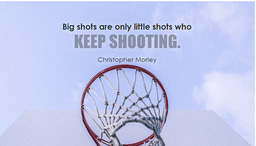Work and parenting in the time of COVID-19

2020 was supposed to be epic for our group. I just came back from maternity leave, excited to share with the world our group’s work of the past 3 years. We had even set a “paper-per-month” challenge for ourselves.
And then COVID-19 hit the world.
Early COVID-19 days
The first days when the lockdown was announced, I saw many relieved tweets about how – finally – academics will have time to think, write, publish, learn anything from programming to piano.
For me the initial reaction was a cold sweat… “I literally just came back! When am I going to do any work? What will happen to my career?” were my panicked thoughts, and I wasn’t alone. Similar messages were heard from many parent scientists.
The good
The months before the lockdown, my life was a sleep-deprived mad rush between nursery, campus, meetings and pumping. Frankly it was very stressful. When the lockdown was imposed, my husband and I split the working day and this was a life-saver. I knew my daughter, Joanna, was well taken care of, I didn’t have to fiddle with pumping and my husband and Joanna became more comfortable with each other. Importantly, Joanna learned to eat real food, crawl, stand, express herself through babbling and movement, and I was there for all of it!
The bad
Splitting the work day with my husband meant that I could work 5 hours per day at the most. By the time I finished the meetings with my group and peers, there was only 1 hour per day left. I had no time to read any literature properly, write, or even to think and in all honesty, I felt like a project manager rather than a scientist. I decided to focus on papers this year rather than grants because I don’t have the capacity to do both. I have also watched research on COVID-19 take off at unprecedented speed, and have had to accept that, even though we have the potential and enthusiasm to contribute, we simply don’t have the bandwidth to work as fast as required.
Success is a state of mind
We are likely not going to complete our “paper-per-month” challenge. I will not apply for any new funding. I did not initiate recruitment for a new lab member. And this is ok.
I would be lying to myself if I didn’t recognise that the grants I am not applying for may impact my future job prospects, and that the papers we won’t submit this year will reduce my chance of success of future applications. My inability to ‘jump on the coronavirus bandwagon’ is a missed opportunity for papers in higher-impact journals, affecting also my group members' careers. Of course the goal of the community is to tackle COVID-19, but let’s face it, riding the bandwagon is also the name of the game (even though this is a prime example of why it shouldn’t be).
Nevertheless, all my group members are happy. We are managing to complete projects at a reasonable pace and have submitted a couple of papers. I am proud of them for their continued enthusiasm throughout this crisis. My daughter is growing to be a wonderful person. I got to spend more time with my husband. So because of this I would say that my lockdown has been a huge success.
Need for change
Life in academia with children is intense at the best of times. Add to this a global pandemic with no childcare options and you have some very stressed parents and a huge drop in their productivity. This is in addition to reduced productivity during the first years of their children’s lives, especially for mothers. One hopes that these factors are considered in future career steps, but in reality academic positions are already sparse and many organisations are unlikely to hire someone with a comparatively worse publication or funding record just because they are parents.
In an ideal world, evaluation should be on the basis of contributions to new ideas and knowledge, potential for further important input, as well as the ability to collaborate to achieve a result greater than the sum of the parts (1). Currently, publications, and the impact factor of their respective journal, are often used as a metric for this, despite many issues associated with this and known disadvantages for parents (2). Expert evaluation of academics on their actual science and ideas rather than their papers as a dry metric, would go a long way to even the playing field between parents and non-parents and would also lead to better hires.
Until this is the reality, parents need to be supported to come out of this global crisis as intact as possible. I am very lucky that at EMBL’s European Bioinformatics Institute (EMBL-EBI), I am able to pause grant writing for some months but this may not be an option for most parents with new research groups and thus they should be supported financially by their funding agencies and institutions. Fellows with children should be guided to make the next move in their career or provided with more time to do so if this proves difficult in the current climate. Prospective employers should compare candidates on the basis of their pre-lockdown science and potential. They should be understanding with delays in publication of their work. Finally, overall emphasis should be on well-being rather than productivity, to avoid adding pressure on already highly-stressed individuals.
For me and my lab, happiness and quality of life always have to come first. I love my job and I try to do my best. But if, because of my motherhood-related reduction in productivity, my best is not enough to compete in the academic world in the future, then so be it - I will find something else to do.
However, for academia not to close the door to some of its most enthusiastic, creative and capable members, we need to collectively become more inventive and fair in evaluating each other based on quality of science rather than quantity and artificial metrics.
1. https://sfdora.org/read/
2. https://royalsocietypublishing.org/doi/10.1098/rspb.2019.2047
I would like to thank Oana Stroe for feedback on this text.
Top image in post: Hans Braxmeier/Pixabay


Join the FEBS Network today
Joining the FEBS Network’s molecular life sciences community enables you to access special content on the site, present your profile, 'follow' contributors, 'comment' on and 'like' content, post your own content, and set up a tailored email digest for updates.
I know Evangelia as a colleague at the EMBL-European Bioinformatics Institute (EBI). Something she is too modest to mention in this piece is the tremendous work that she, along with many of my other colleagues, has put in to help other early-stage researchers (ESRs) at our institute to keep working happily and productively and miminize the chances of disruptions to their career paths --- the same kind of concerns she describes having to deal with for herself too.
In Evangelia's case, this has included taking the lead in finding and assessing options for our ESRs whose contracts are ending soon, looking for (...sometimes "creative"...) solutions, guiding contract extension paperwork through the complex rules that apply to our multi-national, intergovernmental, organisation, and negotiating across that organisation to find ways to act quickly using principles that can be applied consistently across our 6 sites located in 5 European countries. This has taken a significant amount of Evangelia's time and --- I would have thought, although I have seen no evidence for it! --- energy, which she has given willingly.
This has been a great example of how "boring research admin" becomes a vital part of career progression for others. Evangelia writes that she is very lucky that EBI gives her the freedom to adjust her working life during the COVID-19 pandemic. I would add that EBI is lucky to have scientists like Evangelia, whose collegial attitude allows us to achieve a result greater than the sum of the parts.
Nick Goldman
EMBL-European Bioinformatics Institute